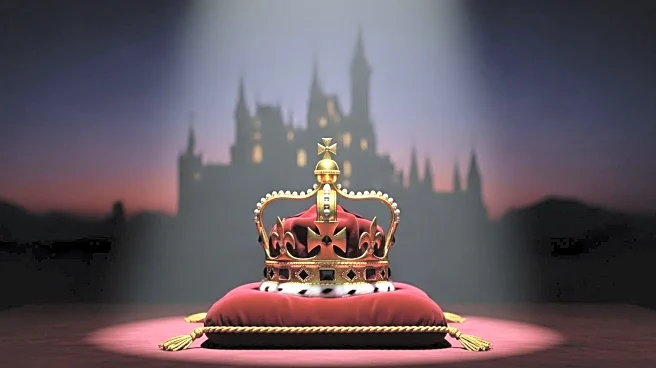What's Happening?
Prince Harry returned to the United Kingdom to promote charitable causes but found himself embroiled in media speculation about his family dynamics. During the WellChild Awards in London, Harry made a joke about sibling relationships, which led to renewed media focus on his strained relationship with his brother, Prince William. Despite his efforts to focus on philanthropy, including donating over a million dollars to youth services, the media attention remained on his family feud. Harry's attempts to shift the narrative from personal conflicts to charitable work have been complicated by his previous monetization of family disputes through books and films.
Why It's Important?
The ongoing media focus on Prince Harry's family issues highlights the challenges public figures face in controlling their narratives. Harry's situation underscores the difficulty of balancing personal and public roles, especially when past actions have commercialized private conflicts. This dynamic affects public perception and can overshadow philanthropic efforts, impacting the effectiveness of charitable initiatives. The situation also reflects broader themes of media influence and the complexities of celebrity status, where personal stories can dominate public discourse, affecting both individual reputations and broader societal issues.
What's Next?
The potential for reconciliation between Prince Harry and his family remains uncertain, with powerful forces within the royal family reportedly opposed to a meeting. Prince William is said to be against any reconciliation, fearing it could be exploited to revive the Sussex brand. Meanwhile, Sir Simon Rycroft, a new deputy private secretary, may offer a more conciliatory approach, potentially opening the door to managed reconciliation. The decision ultimately rests with King Charles, who must balance familial relationships with palace politics, especially as he faces health challenges.
Beyond the Headlines
The situation raises questions about the ethical implications of monetizing personal conflicts and the long-term impact on family relationships. It also highlights the role of media in shaping public narratives and the potential consequences for individuals seeking to transition from private disputes to public service. The dynamics within the royal family reflect broader societal issues of privacy, media influence, and the challenges of maintaining personal integrity in the public eye.











